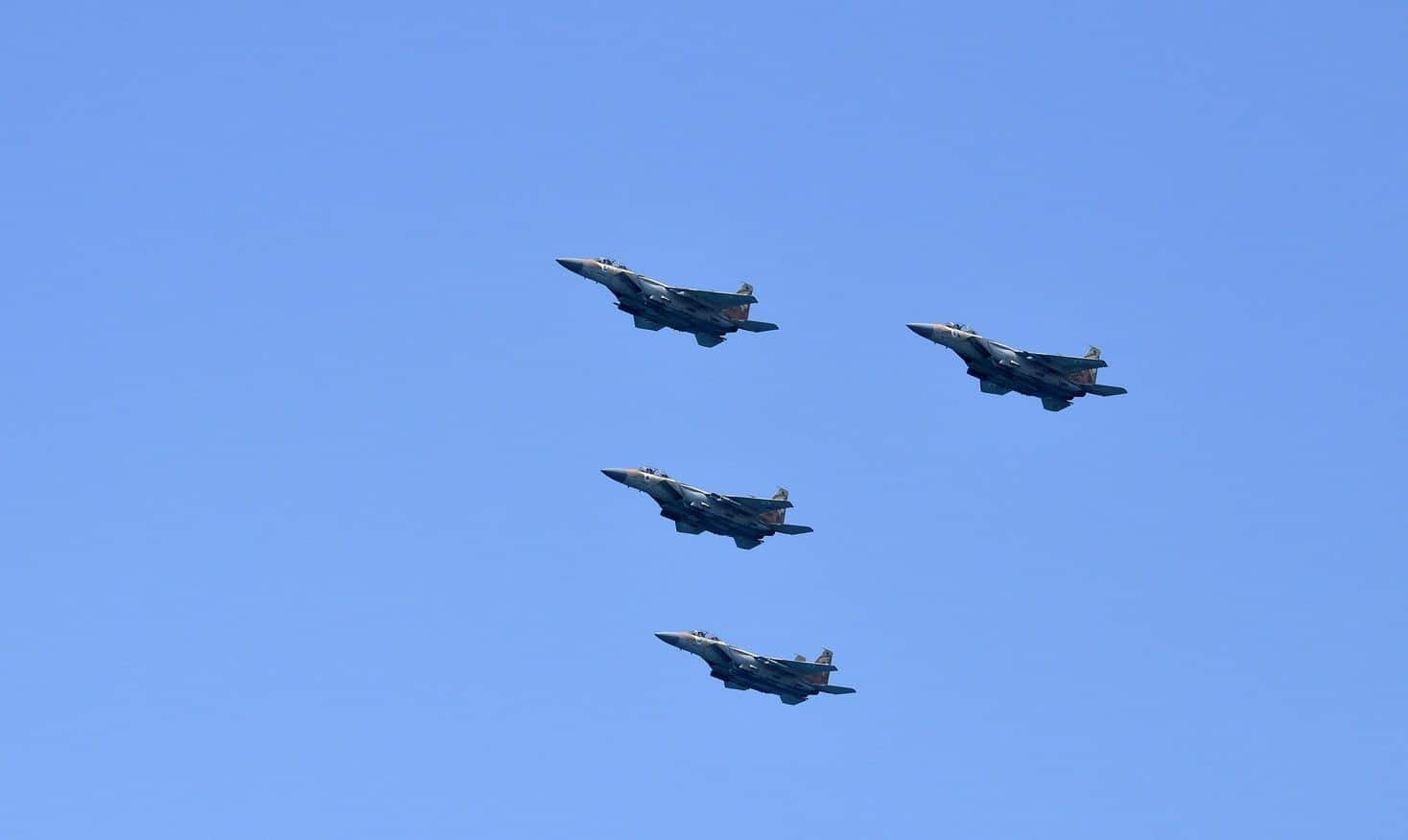The Iranian provocation on the Golan Heights failed, and the Iranians would do well to cut their losses now and end their confrontation with Israel.
There are a number of factors that amplify the message of deterrence that Israel communicated to Iran with its powerful assault on Iranian assets in Syria this week.
The objective of the IDF’s intensive military assault on a variety of Iranian Revolutionary Guards targets in Syria this week, (for which Israel openly claimed responsibility, for a change), was to convince the Iranians that Israel is in control of the “conflict escalation,” as it is known in military circles.
There are three factors that support this message of deterrence: First, the Israeli Air Force is immensely powerful, and only a small part of that power was used in Wednesday’s strikes.
Second – and more importantly – Israel maintains absolute, far-reaching superiority when it comes to intelligence, even down to the tiniest details, and it can translate its control of information into victories in the operational arena.
Third, as Prime Minister Benjamin Netanyahu’s visit to Moscow this week clearly proves, Russia is unwilling to put Iranian interests at the top of its agenda.
The Iranian entanglement in Syria started as a gambit by the Quds Force, which did not necessarily have anything to do with broader Iranian policy on the nuclear issue. Now, the cost of Iran’s failed provocation on the Golan Heights is starting to mount, both diplomatically and militarily.
If the decision-makers in Tehran, meaning the leader and his cohorts, can enforce any kind of authority over the commander of their Quds Force, Maj. Gen. Ghasem Soleimani, now is the time to do so. If they don’t, the strategic price the Iranian regime will have to pay will only continue to rise.
Published in Israel Hayom 11.05.2018
JISS Policy Papers are published through the generosity of the Greg Rosshandler Family.
photo: Bigstock









 - בניית אתרים
- בניית אתרים